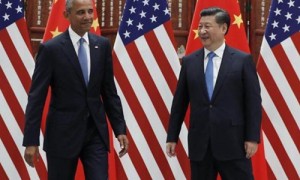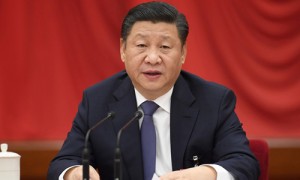黑龙江省是我国主要的非转基因大豆生产基地。今年两会期间,该省人大代表提出议案,建议立法设立特别保护区,严禁种植与加工转基因作物。
Deputies to the country's top legislature hope such a law would preserve ecological diversity, benefit farmers who plant non-GM soybeans and avoid "possible contamination" of the soybean crop by GM plants.
人大代表希望通过这项法案,保护生态多样性,惠及种植非转基因大豆的农民,并避免转基因作物“污染”其他大豆植株。
The size of the proposed special zone would restore the province's soybean growing acreage to its 2010 level of 4.3 million hectares, said national lawmaker Tan Zhijuan.
人大代表谭志娟建议,在黑龙江省设立占地430万公顷的大豆保护区。届时,非转基因大豆种植面积将恢复到2010年的水平。
Tan said universities in Heilongjiang and beyond should have first call on the non-GM soybean products coming out of the special zone.
她还表示,保护区内产出的非转基因大豆应优先供应给黑龙江及其他各省大学的食堂。
"Heilongjiang, China's largest producer of non-GM soybeans, has seen its planting acreage downsized to a tipping point of 1.4 million hectares," said Tan, who is a veteran agricultural specialist.
作为资深的农业专家,谭志娟指出:“黑龙江是我国最大的非转基因大豆种植省。然而近几年,我省的非转基因大豆种植面积已缩减至140万公顷。”
"This represents a drop of a staggering 66 percent in five years following the influx of much cheaper GM imports."
“也就是说,近五年来,随着廉价的转基因大豆进口,非转基因大豆的种植规模已骤降66%。”
Nationwide, China imported 81.7 million tons of soybeans-mostly GM ones-last year, which meant more than 80 percent of its soybean consumption was met by imports, said Tan.
谭志娟表示,仅去年一年,我国进口的大豆量就达8170万吨,其中,多数为转基因品种。换句话说,我国的大豆消费,八成多需依靠进口。
"China has the world's most diversified wild soybean resources," Tan said.
谭志娟说:“我国的野生大豆资源是全世界最多样化的。”
As a responsible country, China must protect living genetic material including seeds and tissue used for plant breeding, preservation and research, Tan said.
她进一步补充道,中国是负责任的大国,有义务保护本国的作物种子与植被组织,以用于作物的种植、保存与研究。
Although the planting of GM soybeans has not been detected so far in Heilongjiang province, there are risks that GM seeds might find their way to the fields, for example, through leakage from road transportation, Tan warned.
虽然黑龙江省尚无种植转基因大豆,但谭志娟警告道,转基因种子仍有可能在陆路运输中漏出或因其他原因落入土壤。
She said the key to establishing the non-GM soybean protection zone would be to build up an industrial chain that streamlines the planting, processing and sales of non-GM soybeans.
她指出,欲建立非转基因大豆保护区,关键在于打造一条集种植、加工、销售为一体的非转基因大豆生产线。
This non-GM industrial chain will differentiate itself from that for GM products and improve the competitive edge of the domestic soybean industry to target its niche market, Tan said.
谭志娟说,这条生产线将有别于转基因大豆生产线,在抢占国内小众市场商机中更具竞争力。
英文来源:中国日报
译者:郭汪韬略
审校&编辑:丹妮







